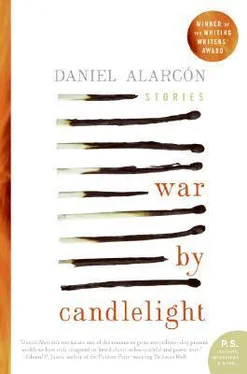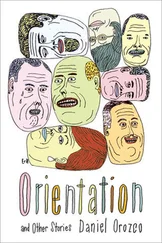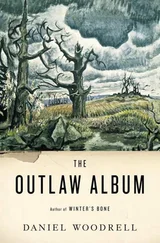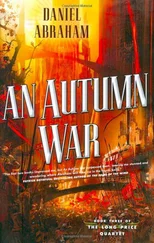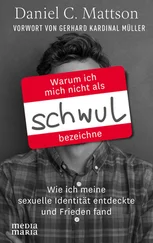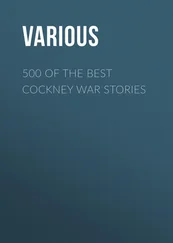The February heat smothered the city, even after dark, and in the evenings, I rarely made it farther than the bar downstairs. The overhead fans whirled, stirring the warmth. I liked listening to the hum of a dozen separate conversations, to the clink of glasses, to cheerful applause in the back room. It made me feel less alone.
One night, a clown stood at the counter next to me. I recognized him. He worked mornings in front of San Francisco, for the children who went there on school trips. I knew the red-and-orange plaid of his suit. Usually he had a partner, but he was alone now, tired, halfway out of costume, headed for home. Like me, he probably wanted a drink to help him sleep. I should have let him go on his way, but before I realized it, I’d blurted out, “You’re a clown.”
He turned, puzzled, and looked me in the eye. “You asking me or telling me, causa ?”
“Asking, friend.”
“And who the fuck are you?” His frown was very un-clown-like, the kind of look that would frighten a child. There was white greasepaint ground into the wrinkles at the edges of his mouth.
“Oscar Uribe,” I said. “I write for El Clarín. ”
“The newspaper?” He turned away now, back to the business of ordering a drink. I pulled out two chairs at a table by the bar and moved my bottle of red wine.
“Maestro!” I called to the waiter. “Another glass, please!” The waiter acknowledged me with a wave. I looked back at the clown, motioning to the empty chair. He shrugged and sat.
His name was Tonio, he said, and he didn’t have all night.
But I kept the wine coming. I found myself telling him about my mother, about my old man. About Pasco and San Juan. He listened and drank. Then he told me about his hometown in the north, about arriving in Lima penniless. He said he’d lived under the Santa Rosa Bridge. And clowning? “It’s work, brother. Better than some, worse than others,” he said. “I’m not good at much else. It’s either this or stealing.”
“Amen,” I said.
He told me how good it felt to be someone else for a living, to be out in the streets on a clear day. He said the children had sweet faces and it touched him to see them happy. He complained about having to compete with every out-of-work nobody selling candy on buses.
“Does it pay the bills?”
“I don’t need much,” he said, nodding. “No wife. No kids.”
“How did you settle on this work?”
He smiled then so unexpectedly I thought he had misunderstood me. And it was a wonderful smile, a real clown smile. With his thumb, he rubbed at the paint still hiding in the creases of his face. His expression told me I had it all wrong. “No causa ,” he said, shaking his head. “It’s like this: you wake up one morning, and boom! you’re a clown.”
Señor Ingeniero Hubert Azcárate opened the door. He shook my father’s hand, patted me on the head, and waved us both in. I wiped my feet three times, back and forth against the heavy doormat. I’d been there many more times than my father had. He was watching my every move. There were three stairs, and at the bottom of the landing the room opened up into a wide, airy space full of light. An L-shaped sofa and a leather armchair were positioned around a wooden coffee table. Built-in shelves along the walls held hundreds of books. I’d looked through them before. Read many. The windows looked out on a garden terrace with trees and grass and flowers sprouting in warm colors.
“Mari!” Señor Azcárate called out. “Your husband is here, with Chino!”
My mother appeared from the kitchen, a little shocked to see us. Her maid’s uniform was a pristine white. She kissed us both on the cheek, and then she asked, concerned, “What are you doing here?”
Señor Azcárate had already found his way to his comfortable leather chair, and he sat now, observing us with an air of patrician benevolence. “Oh don’t worry, Mari,” he said. “Your husband only wanted to speak to me. It’s no problem at all.”
“Go on back to the kitchen,” my father said. “We’ll come say good-bye before we leave.”
“But, Mari,” Señor Azcárate called. “Bring me some coffee. You know how I take it. Would you like coffee, Hugo?”
“Oh no, thank you.”
“It’s no trouble. Really. Mari, bring two coffees.” She nodded and left.
My father sat down. He began by recounting reasons we were grateful to Señor and the Azcárate family. The generosity, the solidarity, the understanding. “Things haven’t always been easy, but I always tell Mari, I tell her every day, God was smiling on us the day she got this job.”
I had never heard my father invoke God for any reason other than to explain the weather.
Señor Azcárate nodded, yes yes yes , savoring my father’s gratitude. He was a thin man, whose pale blue eyes had become even more prominent as his hair had receded. He often squinted when he spoke, as if we were drifting away and he might lose sight of us. “Please, please, Hugo. Go on.”
“Señor Ingeniero, at Chino’s new school,” my father continued, “everyone will have money.” I was about to start at a private school in San Isidro, where the Azcárates had arranged a scholarship.
“Are you worried about the tuition?” Señor Azcárate asked. “I explained to Mari that everything is covered except the uniforms.”
“No, no, it’s not that.” My old man searched for the right words. “You know, Señor Ingeniero, I’m a builder. I work almost every day — I should say, every day that I can.” He put his arm around me. “We’re so proud of Chino. I always knew that he was a smart one. But, you know, we struggle to pay for this, to pay for that. There isn’t always work, that’s the thing…. I’m embarrassed to even ask, after all you’ve done for us.”
“No, no, ask, Hugo, please.” Señor Azcárate leaned toward my father. My father’s silence was studied. “How long has Marisol worked with us?” Azcárate asked. “I’ll tell you: long enough so that she’s family.” He smiled, then turned to me, speaking as if to a child of five. “You’re family, Chino, you know that? Your father, he’s family too.”
I nodded, perplexed. Finally, my old man spoke, and this time he went straight to the point. “I was hoping, if it’s possible, if anyone from Chino’s new school would be doing work on their house…”
“I really couldn’t say.”
“No, but if they were, could you put in a word for me? For my business?”
It was Don Hubert Azcárate’s favorite kind of favor: the kind he could fulfill. The kind that confirmed his own charity. He was a nice man, he really was. He promised that he would. My father smiled happily. “Thank Señor Azcárate, Chino,” he told me. I shook the engineer’s veiny hand. Then my father thanked him effusively. The two men embraced. “You don’t know what this means to me,” my old man said.
My mother appeared with the coffee.
All my life, I’ve been Chino. In Pasco, in Lima. At home, in my neighborhood. The way some people are Chato or Cholo or Negro. I hear those two syllables and look up. There are thousands of us, of course, perhaps hundreds of thousands, here and everywhere that Spanish is spoken. No nickname could be less original. There are soccer players and singers known as Chino. One of our crooked presidents lived and died by his moniker: chino de mierda. Still, it is my name, and always was my name. Until I started at Peruano Británico. There, I was called Piraña.
Piranhas were already a phenomenon in Lima by the time I started high school. The authorities had ordered investigations and organized police sweeps. There were news reports and shocking images. A city on the brink. In packs of fifteen or twenty, they would swarm a car and swiftly, ruthlessly undress it. Hubcaps, mirrors, lights. The crawling commute held the prey in place — the owner of the car, helpless, honking his horn frantically, aware perhaps that the wisest thing was to do nothing at all. To wait for them to pass. But that was only an option for a while. More audacious crews started breaking windows, taking briefcases, cell phones, watches, sunglasses, radios. Full service , people joked darkly. A new kind of crime, sociologists said. And an astute observer — of the kind who traffic in phrases — named them piranhas.
Читать дальше
